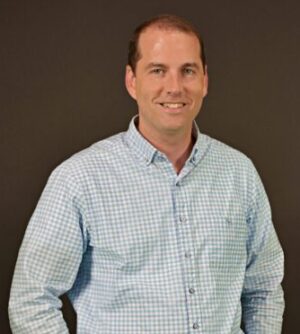
Tommy Chuck, SVPP, iHeartMedia, Tampa Bay | West Palm Beach | Treasure Coast | Sarasota
June 18, 2021
by Fred Deane

Tommy Chuck
If it takes a legendary PD to program a legacy station, there’s no better match than Tommy Chuck and WFLZ. After all, he’s an astute student of the game and has a full reverence for the irreverence that was once WFLZ during its Power Pig heyday of decades past. But more importantly, Tommy understands the value of leadership as it applies to a vision path to ensure the station’s legacy of success.
His 20+ year career spans a variety of programming and air talent positions at stations like WTXM/Knoxville, WVSR/Charleston, WKXJ Chattanooga, WQEN/Birmingham, WPOC/Baltimore, WIHT/DC and WXXL/Orlando, but since his arrival in Tampa in 2007, it’s been all about a dedicated path to a senior programming role at iHeartMedia.
Aside from his programming oversight in Tampa, in the fall of 2020 iHeart up its ante with Tommy with a new assignment as SVPP of Programming overseeing West Palm Beach, Sarasota and Treasure Coast.
In November of 2020, you added SVPP duties over three more Floridian markets. What were the most notable challenges and lessons you encountered given the new set of responsibilities?
The biggest challenge is building and maintaining strong relationships with my team. The distance between markets makes it challenging to give everyone on my team the face time I’d like to give them. I guess the biggest lesson I’ve had to learn is that I can’t be in five places at once, no matter how hard I try. The fear that keeps me up at night is the fear that someone, somewhere, won’t feel the love and appreciation they deserve, but technology has allowed us to stay connected.
When you get into the day-to-day programming of stations, it’s all about prioritization, delegation and time management. Those skills are not only important for me as the SVPP, but across my team my PDs also have multiple duties. I want to make sure I’m helping them gain strength in these areas as well.
Which duties did you find more easily adaptable given your vast programming experience?
I’ve been blessed to program multiple formats over the years. That’s been helpful and gives me a basic understanding of each station and format I’m responsible for.
Embracing all the new technology iHeart has invested in is key. We’ve developed a ton of centralized tools and resources to make my job easier. I’ve learned to let go of repetitive tasks which can be done by technology while I spend my time coaching my team.
Last year, you had the rare opportunity to launch a new local morning show on WFLZ during a pandemic year. How challenging was the implementation given the circumstances of 2020?
It’s been both positive and negative. Lower listening levels during the pandemic in morning drive allowed us to experiment and make some mistakes without long-term consequences. We also faced several major news events related to the contentious election, racial injustice, and of course, the pandemic itself. For such a young show, facing those things so early will help make THEjoeSHOW well-rounded and able to handle anything that comes along. On the flip side, we understand it will take a little longer than normal for our new show to gain that #1 spot in a very competitive market.
I’m very proud of the job that Joe, Ashley and producer Jed have done in building THEjoeSHOW on 93.3 FLZ. The show had a built-in foundation as they are long-time friends and all worked at WKQI in Detroit. Each Sunday night, PD Tony Travatto allowed them to do a morning show talk format and build their demo. They were prepared for the opportunity. They’re in their mid-20s and have many years of success ahead of them!
WFLZ has a legacy of being the place where “what’s next” for CHR should come from. That’s what’s so exciting for me personally when it comes to THEjoeSHOW. Listen to them, you’ll hear it. They’re the future. They’re re-defining what mornings in our format is. That’s what WFLZ morning shows have always been all about. It’s exciting now, but what’s more exciting is where they’ll be in 10, 20 years. Buckle up.
Are radio groups in general drifting away from one of the most crucial points of differentiation radio has versus its digital streaming competitors by increasingly utilizing national programming and talent importation?
We are blessed to have some great air personalities on our team locally. It’s great to be able to supplement that with other entertaining companions who are the best in the industry. What comes out of the speakers is the most important thing. I choose not to get caught up worrying about where the DJ lives. If they connect, tell great stories, and make our fans feel something emotional, that’s what counts. If we do this well, we’ll always win.
One of the biggest parts of my job as an iHeartMedia Program Director is searching for great local content and feeding it to our talent for use on-air and online. It’s the first thing I do when I get to my desk each morning and is something I keep my radar up for all day.
Given all the data sources available to programmers these days, is the industry overwhelming itself with an overreliance of analytics at the expense of localized creative decision-making and gut calls?
Drowning in data is an easy thing to do these days. Everything has a story with data to back it up. It’s easy for programmers to get confused and stuck, and easy for some to avoid making decisions.
We have some awesome tools at iHeart that save us time making obvious decisions. In many cases though, the data yields multiple “right” answers. A great PD needs to have the confidence to pick the best one for the brand. That’s the “magic” which can’t be performed by an algorithm or data points.
Are Top 40 programmers as creative as they should be given this recent era of extra-capacity workloads and reduced staffs?
You make time for the things you value most. Does it have to be done differently? Sure. Long gone are the days where ten people can randomly do a three-hour lunch. You have to schedule it. You have to focus it. You have to think differently about who you include and how. Platforms like Zoom and Microsoft Teams make it easier than ever to bring a big group together or to brainstorm with your inner circle who may be in other markets around the country…or world.
How do you approach demo-targeting with the various stations you oversee, and is the Top 40 format underserving the younger demo to the detriment of losing them as future listeners?
While we are at the mercy of the Nielsen ratings, it will always be a challenge to form that coalition between moms and daughters.
To reach young people, it’s important for brands to be available on any device and able to be consumed in bite-sized chunks on their schedule. We need to continue to create moments they will remember forever. Live events like 93.3 FLZ’s Jingle Ball or the iHeartRadio Music Festival are great ways to do that. Showing up at their school, creating great content on social media, celebrating milestones like graduations, proms, etc., are also very effective ways.
When you become a part of someone’s life emotionally, you become family. The balance of ‘cultivation’ and ‘ratings’ and ‘metrics,’ will take care of themselves. Why? Family Equals Loyalty. Make them family, win the loyalty.
What differentiates iHeart from other radio groups in terms of its bold nature to try different methods to operate its properties?
Our philosophy is that we want to move FAST to seize opportunities. Chaos wins. Some risks turn out to be great and everyone else follows, like our iHeartRadio streaming platform, our significant investment in podcasting, and events like the iHeartRadio Living Room Concert we put together in record time at the beginning of the pandemic.
Sometimes, those risks don’t work out so well. We want to recognize those quickly and move on from them, but learn from them. If you learn from what some consider a ‘mistake,’ is it really a mistake? I consider it a teachable moment.
I always joke and say, “Chaos is part of our culture.” Anytime you are blazing a new trail, things can kind of get messy. The ability to stay calm is key!
You’ve always been very high on the iHeart company culture. Can you elaborate on this and what makes it so appealing to work in that environment?
If you have a hard time adapting to change, embracing new technology, staying calm facing challenges, or collaborating with peers, it probably isn’t the place for you. I find all that stuff exciting. It’s not always easy, but exciting makes it fun, and if we’re having fun while changing the game and evolving our culture and industry, that to me is a win-win.
Our industry is coming off a very difficult year relative to extensive personnel reductions and the disruptions caused by a pandemic year. Can you address the optimistic spirit you maintained through all the adversity?
I’ve always been a “glass half full guy” and try to find opportunity in whatever situation I’m handed. Some might call me naive, but I’d rather be that than dig myself into a hole of negativity.
I acknowledge that there have been many who have lost their jobs over the past year, and of course, I found that difficult to process. I try hard to be supportive of my friends who find themselves suddenly without work. That said, my job as a leader is to be strong for those great people who remain on the team. If I’m negative, that is contagious and not helpful. I want to always remain positive and optimistic.
My family also keeps me optimistic. At the end of even the toughest radio day, I can come home and see my daughter Amelia smile, or I can go play catch with my son Bergen, or get a hug from my wife Alli, and I remember what all of this is for.
Programming multiple stations in multiple markets and being a fulltime family man, how do balance the work/family life equation?
I believe one of my strongest skillsets is time management. I utilize my Outlook calendar to make sure I don’t get distracted during key times of the day. I block off time to drive my kids to school and often walk with my wife to pick them up, I rarely miss a doctor appointment, school function or a baseball practice. When I’m on vacation, my email is OFF and only a few key people have a secret “bat-phone” to reach me in case of true emergencies. I start my day early and end it late. Living less than five minutes from the office is also helpful.
The bottom line is, I truly prioritize my family. When I die, I don’t want anyone talking much about what a great radio programmer I was. I want my legacy to be as a father, husband, and friend. I encourage my staff to have the same approach, and to remember that all we have to offer is the legacy we leave behind.

